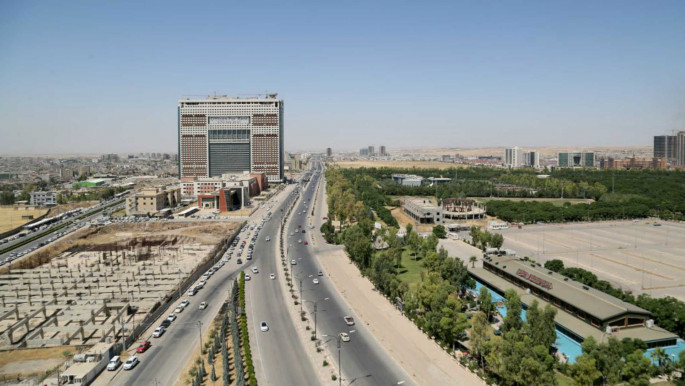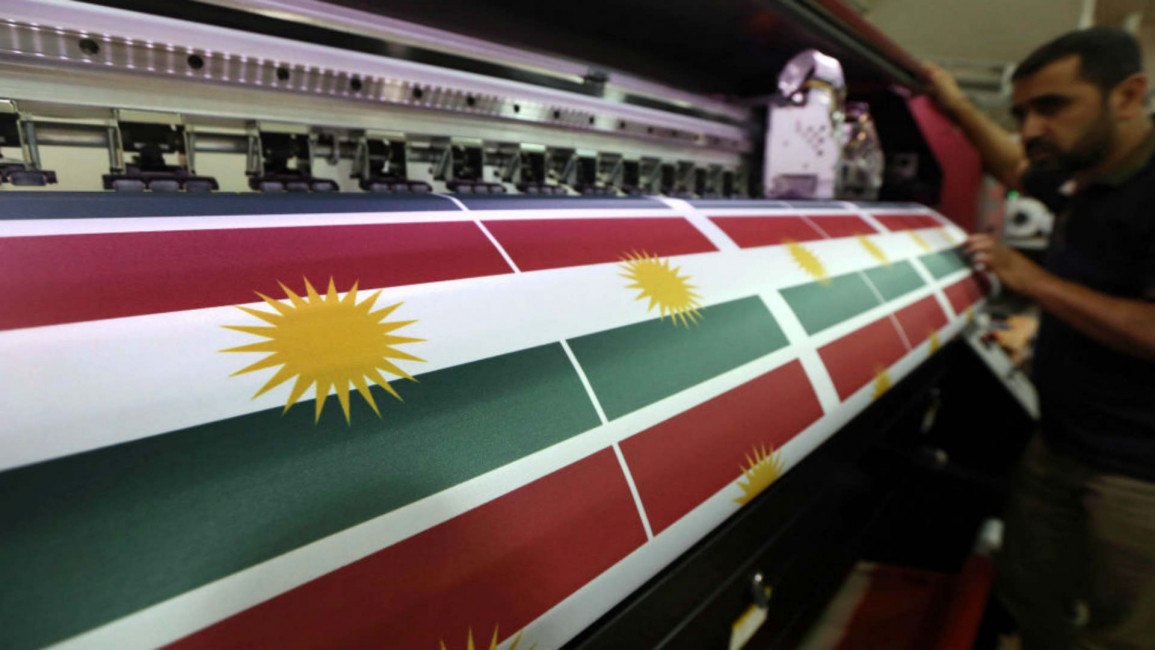
An abrupt divorce would harm all Iraqis, Kurds included
Despite US officials' request to postpone the referendum date, the President of Kurdistan Regional Government (KRG) Masoud Barzani declared that there is no turning back.
Given the referendum is not binding, some Republicans in the US Congress see no reason to object to the Kurdish bid. Others, however, perceive a potential headache as the war against Islamic State (IS) is not over yet.
For many in Washington, the question is not about Kurds' right to self-determination. The elephant in the room is the Sunni Arab future in Iraq. Kurds have long been a backbone of the country's Sunni-Shia-Kurd relations, lessening the sectarian divisions.
Without the Kurds, Iraq is likely to get bogged down into intractable sectarianism: A repressive Shia government in Baghdad with a large majority (75 percent) Shia population - in addition to an emboldened Shia militia power - is a recipe for new incarnations of Islamic State.
As a result, Washington must first decide if it supports a policy of Iraq remaining unified. A long-debated alternative to "one-Iraq" policy was de-centralisation.
 |
Kurds have long been a backbone of the country's Sunni-Shia-Kurd relations, lessening the sectarian divisions |  |
Enter the question of oil-rich disputed territories - which will remain as the main source of contention for all parties without a serious diplomatic road map. The worst-case scenario for all Iraqis is an abrupt divorce from Kurdistan without reaching a true agreement with other parties. Indeed, Sunni tribes may find local autonomy the most feasible and least threatening outcome of the long-standing conflict in the country. In the war against IS, the People's Mobilization Forces - known as the Shia militias - have established strongholds in traditionally Sunni Arab lands. Therefore, potential US-led de-centralisation efforts would now entail lengthy negotiations with Baghdad.
Such a move may trigger Tehran's fear that American and Turkish influence will prevail in a critical region that is adjacent to Iranian Kurdistan. Aggravating such fears is the fact that the major Kurdish political parties have now returned to arms against the Islamic Republic of Iran, and begun launching attacks.
Tehran's hardliners find their echo in former Iraqi Prime Minister Nouri al-Maliki's statement that "the use of force may be necessary" to deter the KRG's policy to establish "a greater Kurdistan".
 |
|
| The infrastructure in Erbil, the capital of Iraqi Kurdistan, is still largely dependent on the central government [Anadolu] |
The upshot of this is that Washington's decision over Kurdistan's independence can no longer be separated from the changing course of Iran policy under the Trump administration.
Regarding American interests in the Gulf, an independent Kurdistan may have little to offer more than the current status quo, while it involves too many risks. Pushing Baghdad further into Iran's orbit is a serious matter by itself, with substantial complications.
 |
The elephant in the room is the Sunni Arab future in Iraq |  |
For Kurds, the independence referendum is a strategic move to reap the political advantage of the military success on the ground against Islamic State. As the referendum is non-binding and would not necessarily mean a total break from Baghdad, and may well serve the Kurdish goal of getting concessions from the central government in the disputed territories.
Such contentious escalation, however, may be counterproductive for Erbil, and in a heated atmosphere, Baghdad may have the upper hand. The city's infrastructure and basic needs in disputed territories still largely depend on the central government.
More importantly, as Iraqi elections in April 2018 are fast approaching, hawkish elements in Baghdad's regime will exploit ethnic and sectarian fears by targeting Kurds.
As a result, an aggressive push in the disputed territories may trigger a reaction that could harm Kurdish aspirations in the long run. "The last thing we want," admits Masoud Barzani, is "a long-lasting territorial dispute with Iraq that could poison our future relations".
 |
Washington's decision over Kurdistan's independence can no longer be separated from the changing course of Iran policy under Trump |  |
In fact, given the current status of Kurds in Iraq, full independence may usher in a better future for Kurdistan on the condition of good Erbil-Baghdad relations. Kurdistan's current autonomy is already comparable to an independent state: The KRG has its own security apparatus and military forces, draws direct foreign investments, and pursues independent an foreign policy.
Moreover, in the scenario that the referendum does not bring Kurdish unity, the KRG's bid will be a pyrrhic victory at best. Growing dissent among the Kurdish opposition led to "vote-No" campaigns. If voter turnout is low and the approval rate gets below 80 percent, the referendum may even become an embarrassment for the government.
Without a strong electoral mandate - no weaker than the informal 2005 referendum in which 98 percent of Kurds indicated their willingness for independence from Baghdad, Barzani's legitimacy will still be challenged, and thus, the hope of gaining the upper hand in negotiations with Baghdad is far-fetched.
The Kurdish opposition alliance (PUK-Gorran) are also competing to win over the Kurdish constituencies in Sulaymaniyah and Halabja provinces, and is still a significant force shaping Kurdish politics from within.
The PUK, for example, boycotted Barzani's referendum preparation meeting and released a joint declaration with Gorran to call on the government to re-activate Kurdistan's parliament before the referendum.
Regarding Kurdistan's current parliamentary crisis, Washington may play a positive role in brokering a deal among parties. A priority for US strategic interest is the long term stability of Iraqi Kurdistan - which now suffers from deep mistrust, increasing frustration, and serious financial struggles.
A working parliament and functioning democracy would better serve Kurdish prosperity than a referendum that dismisses the opposition's demands.
Dr. Mustafa Gurbuz is a Middle East Analyst at Arab Center Washington DC and teaches in the Arab World Studies program at American University.
Follow him on Twitter: @Mustafa__Gurbuz
Opinions expressed in this article remain those of the author, and do not necessarily represent those of The New Arab, its editorial board or staff.




